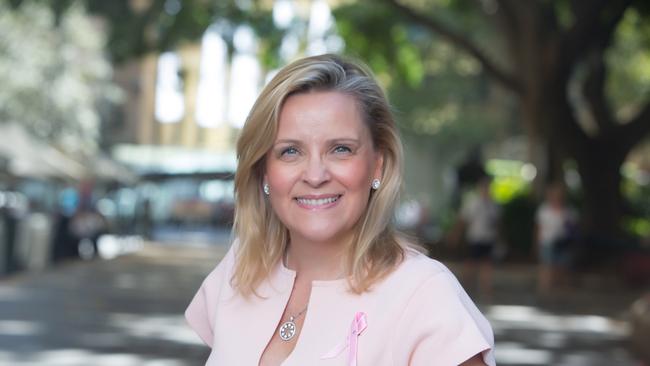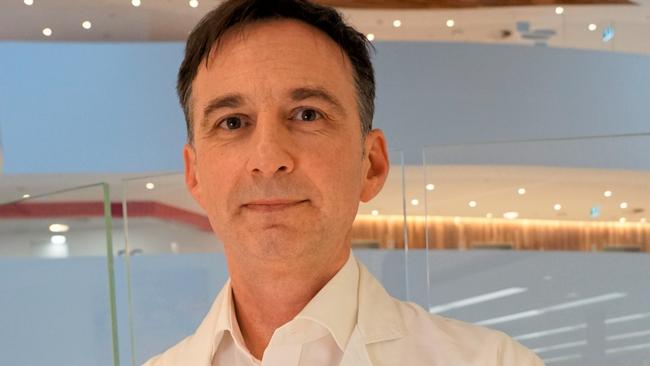A new blood test could predict the risk of breast cancer
Catching breast cancer before it develops is the holy grail, and groundbreaking research into a new blood test could achieve that.
National
Don't miss out on the headlines from National. Followed categories will be added to My News.
Exclusive: A trail blazing blood test that could warn women in their thirties they are at high risk of developing breast cancer is under development in Australia.
The test, which is likely to cost less than $100, has been described by as a landmark step towards prevention of the cancer and in personalising breast cancer management.
“Instead of just treating every woman in the population as having the same risk, we can say to some people actually your risk is much higher and we need to concentrate on that,”
Melbourne researcher Professor Paul James said.
Currently most women don’t begin breast cancer screening until they turn 50.
The idea is to use the new test on women in their thirties to identify those at higher risk of cancer so they can begin close monitoring via MRI or mammograms or perhaps start lifestyle changes and preventive treatments.
Women found to be at lower risk might delay their screening until they are aged 50.
It is one of 13 game-changing research projects worth $4.3 million funded by the National Breast Cancer Foundation (NBCF) from today as part of its goal to have zero deaths from the cancer within nine years.
“Ultimately if this is successful, it will completely transform the way breast cancer screening is approached,” NBCF CEO Sarah Hosking told News Corp.
Since 1994 the foundation “has invested $184 million into 574 game-changing research projects, contributing towards increasing the five-year survival rate for breast cancer from 76 per cent to 91 per cent,” she said.
There are currently genetic tests for cancers caused by gene mutations but only five to 10 per cent of breast cancers fall into this class.

Professor James’ research team at Melbourne’s Peter MacCallum Cancer Centre has identified biomarkers of DNA damage in the blood that are linked to the risk of developing breast cancer in the future.
These biomarkers are not inherited like the BRCA gene mutations linked to breast cancer but are the result of ageing and environmental factors.
“We are talking about variants that might be present in only 10 per cent of your genetic material,” he said.
“They must have occurred at some point after conception, the genetic alteration or mutation has occurred in your body, and then later down the track we can pick that up in your bloodstream.”
The team is drawing on a rich data base of blood and tissue samples provided by tens of thousands of Australian women.
The women are part of the Peter MacCallum Cancer Centre’s Lifepool study and have been tracked for more than 10 years.

During the study a number of women have developed breast cancer and Professor James said researchers had found genetic abnormalities in the bloodstream of these women that were also present in high amounts in the breast tumour.
This indicates these biomarkers are really important when it comes to the formation of the tumour and that women who have them are at higher risk of developing cancer, he said.
It is hoped these biomarkers may be specific enough to indicate the type of breast cancer a woman has – whether it is HER2 positive or triple negative – and this would inform what preventive measures a woman could enact.
Professor James hopes that within three years he will have a blood test ready for clinical trials.
Twelve other projects including a test to tell whether a woman needs radiotherapy treatment and a new medical device that can select the best possible drug for a woman’s specific type of breast cancer have also been funded.
Three thousand Australian women die from the cancer each year.
The NBCF has invested $184 million into 574 research projects that have contributed towards increasing the five-year survival rate for breast cancer from 76 per cent to 91 per cent, saving 47,000 lives.





